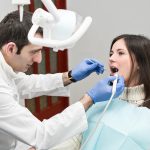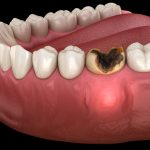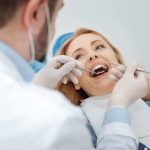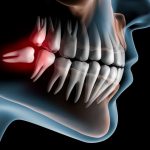PostDeep Cleaning Diet: What Foods Can You Eat to Promote Oral Health?

Oral health is an essential aspect of overall well-being, and keeping it in check requires more than just regular brushing and flossing. One of the most effective ways to maintain good oral hygiene is through dental deep cleaning, which involves the removal of plaque and tartar buildup from the teeth and gums. However, after undergoing this procedure, it is crucial to follow a post-cleaning diet that promotes oral health and prevents any further buildup. In this article, we’ll take a closer look at what foods you can eat to keep your mouth healthy and clean after a deep cleaning. The post-deep cleaning diet should consist of foods that are rich in essential vitamins and minerals that promote oral health. These include calcium, vitamin D, and phosphorus, which help strengthen teeth and bones. Additionally, foods high in fiber, such as fruits and vegetables, help stimulate saliva production, which helps neutralize harmful acids in the mouth. Furthermore, foods low in sugar and acid content can help prevent tooth decay and erosion, which are prevalent issues among people who consume a lot of sugary and acidic foods. So, let’s explore some of the best foods to eat after a deep cleaning to ensure optimal oral health.
Deep cleaning, also known as scaling and root planing, is a dental procedure that involves the removal of plaque, tartar, and bacteria from the teeth and gums. This procedure is usually recommended for individuals with periodontal disease or those who have not had a professional cleaning in a long time. Deep cleaning involves two main steps: scaling, which involves removing plaque and tartar from the teeth and below the gum line, and root planing, which involves smoothing out the roots of the teeth to prevent bacteria from accumulating. Deep cleaning is an effective way to promote oral health and prevent gum disease, but it is important to maintain good oral hygiene habits and follow a healthy diet to ensure optimal results.
Oral health is a critical aspect of overall wellbeing, as it plays a vital role in maintaining excellent physical health. Poor oral hygiene can lead to various dental problems, including tooth decay, gum disease, and bad breath, which can be both painful and costly to treat. In addition, poor oral health can have severe impacts on one’s general health, including cardiovascular disease, respiratory infections, and diabetes. Therefore, it is essential to practice good oral hygiene habits, such as regular brushing and flossing, and maintain a healthy diet that promotes healthy teeth and gums. Consuming foods rich in calcium, vitamin D, and antioxidants can help strengthen teeth and fight against harmful bacteria that cause dental problems.
Maintaining a healthy diet is crucial not just for overall health, but also for oral health. Certain foods can promote the growth of bacteria and plaque, leading to tooth decay and gum disease. A diet rich in fruits, vegetables, and lean proteins can help to strengthen teeth, gums, and bones, while also providing important nutrients for the body. Additionally, drinking plenty of water can help to wash away food particles and bacteria, keeping the mouth clean and fresh. Avoiding sugary and acidic foods and beverages can also help to prevent tooth decay and erosion of tooth enamel. By following a balanced and nutritious diet, individuals can improve their oral health and reduce the risk of dental problems in the future.
Foods to Eat After a Deep Cleaning
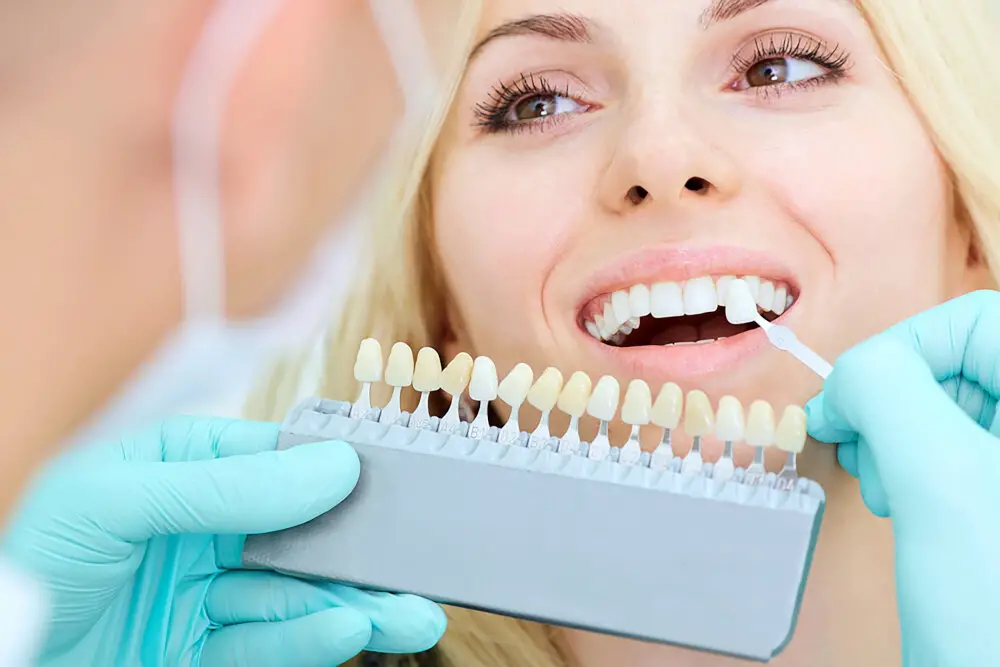
After undergoing a deep cleaning at the dentist’s office, it is important to maintain good oral health to prevent further buildup of plaque and tartar. One of the best ways to do this is through a healthy diet that promotes good oral hygiene. Some of the best foods to eat after a deep cleaning include fresh fruits and vegetables, lean protein sources, and dairy products. Fresh fruits and vegetables are great for promoting oral health because they contain high levels of vitamins and minerals that help to strengthen teeth and gums. Some of the best options include apples, carrots, celery, and leafy greens like spinach and kale. These foods help to increase saliva production, which in turn helps to wash away bacteria and food particles that can cause plaque buildup. Lean protein sources like chicken, fish, and tofu are also beneficial for promoting oral health, as they contain essential amino acids that help to repair and strengthen teeth and gums. Finally, dairy products like milk, cheese, and yogurt are great sources of calcium and phosphorus, which are essential for strong, healthy teeth.
Antioxidant-rich foods are an essential part of any post-deep cleaning diet. These foods are packed with nutrients that help to neutralize harmful free radicals in the body, reducing the risk of cellular damage and inflammation. Some of the best antioxidant-rich foods include berries, leafy greens, nuts, and seeds, which are all excellent sources of vitamins, minerals, and phytochemicals. These foods can help to promote oral health by reducing the risk of gum disease and tooth decay, while also supporting overall health and wellbeing. Incorporating antioxidant-rich foods into your diet is a simple and effective way to support your oral health and maintain a healthy smile.
Calcium is a vital nutrient for maintaining strong teeth and bones. Foods high in calcium include dairy products such as milk, cheese, and yogurt. Dark green leafy vegetables such as kale, collard greens, and spinach are also excellent sources of calcium. Additionally, seafood such as salmon and sardines, fortified cereals, and tofu are good sources of calcium. Incorporating these foods into your post-deep cleaning diet can help promote oral health by strengthening your teeth and bones. It is essential to consume enough calcium to maintain healthy teeth, especially after a deep cleaning procedure that may have left your teeth more vulnerable to decay and infection.
High fiber foods are an excellent addition to any diet, particularly for those looking to promote better oral health. Foods like fruits, vegetables, and whole grains are packed with fiber, which can help to scrub away plaque and bacteria from the teeth and gums. Fiber also helps to stimulate saliva production, which can neutralize harmful acids and promote healthy digestion. Some great high fiber foods to include in your post-deep cleaning diet include apples, carrots, broccoli, beans, and whole grain breads and cereals. Not only will these foods help to keep your mouth healthy, but they can also provide a range of other health benefits, such as improved digestion, weight management, and reduced risk of chronic disease.
After a deep cleaning at the dentist, it’s important to maintain good oral health. One of the ways to do this is by consuming foods rich in vitamin C. This vitamin is essential for the growth and repair of tissues in the body, including the gums. Foods such as oranges, kiwis, strawberries, and bell peppers are great sources of vitamin C. Incorporating these foods into your post-deep cleaning diet can help strengthen your gums and reduce the risk of gum disease. Additionally, vitamin C is known for its antioxidant properties, which can help protect the body from damage caused by free radicals. So, not only will these foods benefit your oral health, but they will also contribute to your overall health and wellbeing.
Foods to Avoid After a Deep Cleaning

After a deep cleaning, it’s important to take care of your mouth to ensure optimal oral health. One way to do this is by being mindful of the foods you consume. Certain foods can have a negative impact on your teeth and gums, undoing the hard work of your dental hygienist. Avoiding these foods can prevent further damage and promote faster healing. First and foremost, it’s crucial to avoid any sticky or chewy foods. These types of foods can get stuck in your teeth and create a breeding ground for bacteria. This can lead to cavities, gum disease, and other oral health issues. Examples of sticky or chewy foods to avoid include caramel, taffy, gummy candy, and dried fruits. Additionally, hard and crunchy foods should be avoided as they can cause damage to the teeth and gums. Foods like popcorn, ice, and hard candy can cause cracks, chips, and other damage to your teeth. By avoiding these types of foods, you can promote faster healing and reduce the risk of future dental problems.
Sugary foods and drinks are some of the biggest culprits when it comes to poor oral health. Consuming too much sugar can lead to tooth decay, cavities, and gum disease. It’s important to limit your intake of sugary foods and drinks, such as candy, soda, and sports drinks. If you do choose to indulge in these types of treats, it’s best to do so in moderation and make sure to brush and floss your teeth afterward. Opting for healthier alternatives, such as fresh fruits and vegetables, whole grains, and water, can help promote oral health and keep your teeth and gums in top condition.
Acidic foods and drinks are known to cause damage to tooth enamel, leading to tooth decay and sensitivity. These foods and drinks include citrus fruits, fruit juices, carbonated beverages, wine, and vinegar-based dressings. While it is important to limit consumption of these acidic items, they can still be enjoyed in moderation. It is also recommended to rinse the mouth with water or chew sugar-free gum after consuming acidic foods and drinks to help neutralize the acid and promote saliva production, which aids in oral health. Opting for low-acidic alternatives such as dairy products, nuts, and vegetables can also be beneficial for maintaining healthy teeth and gums.
Alcohol and tobacco are two substances that can have a negative impact on oral health. Both alcohol and tobacco use can increase the risk of developing oral cancer, gum disease, and tooth decay. Alcohol is also known to dry out the mouth, which can lead to a decrease in saliva production and an increase in harmful bacteria. Tobacco use can stain teeth, cause bad breath, and increase the risk of oral infections. It is important to limit or avoid the use of alcohol and tobacco to promote good oral health.
Tips for Maintaining Oral Health After a Deep Cleaning
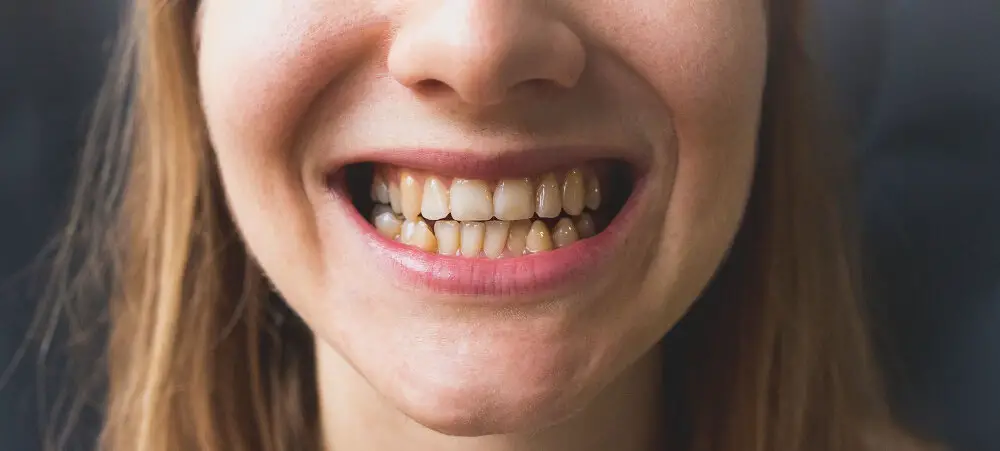
After a deep cleaning, it is important to maintain good oral hygiene to prevent the buildup of plaque and tartar. One of the most important tips for maintaining oral health after a deep cleaning is to brush your teeth at least twice a day using a fluoride toothpaste. This will help to remove any food particles and bacteria that may be stuck between your teeth and gums. It is also important to floss daily to remove any remaining food particles and bacteria from hard-to-reach areas. Another tip for maintaining oral health after a deep cleaning is to avoid sugary and acidic foods and drinks. These types of foods can erode your tooth enamel and increase your risk of cavities. Instead, try to eat a balanced diet that is rich in vitamins and minerals, such as fruits, vegetables, whole grains, and lean proteins. Drinking plenty of water throughout the day can also help to flush out any bacteria and food particles that may be lingering in your mouth. By following these simple tips, you can help to maintain good oral health and prevent the need for future dental cleanings.
Brushing and flossing are essential practices for maintaining good oral health. When brushing, it is important to use a soft-bristled toothbrush and fluoride toothpaste. Brush in circular motions, angling the brush towards the gum line to remove plaque and food particles. Be sure to brush all surfaces of teeth, including the backs and tops. Flossing should be done at least once a day to remove plaque and food debris from between teeth. Use a gentle sawing motion, moving the floss up and down each side of the tooth. These techniques can help prevent tooth decay and gum disease, ensuring a healthy and bright smile.
Regular dental checkups are essential for maintaining good oral health and preventing dental problems. During a dental checkup, the dentist will examine your teeth and gums, looking for any signs of decay or gum disease. They may also take X-rays to check for hidden problems beneath the surface. It is recommended that you have a dental checkup at least once every six months, although your dentist may recommend more frequent visits if you have a history of dental problems or if you are at higher risk for certain conditions. By scheduling regular dental checkups, you can catch dental problems early and prevent them from becoming more serious, saving you time, money, and discomfort in the long run.
Hydration is a crucial aspect of maintaining good oral health. It helps to keep the mouth moist and flushes out harmful bacteria that can cause dental problems such as cavities and gum disease. Drinking plenty of water also aids in the production of saliva, which contains enzymes that break down food and protect teeth from decay. Additionally, staying hydrated can prevent dry mouth, which can lead to bad breath and an increased risk of tooth decay. It is important to drink plenty of water throughout the day, especially after consuming sugary or acidic foods and beverages, to promote oral health and maintain a healthy smile.
Limiting snacking is an essential aspect of maintaining good oral health. Frequent snacking can lead to an increased risk of tooth decay and gum disease, as it exposes your teeth to acid attacks from bacteria for a longer period. Instead of snacking, it is recommended to consume a balanced diet with three meals a day consisting of whole grain carbohydrates, lean proteins, and vegetables. Additionally, drinking plenty of water throughout the day can help wash away food particles and reduce the risk of plaque buildup. By limiting snacking and adopting a balanced diet, you can promote good oral health and maintain a healthy smile.
After a deep cleaning session, it is crucial to maintain a healthy diet to ensure that your oral health is not compromised. A post-deep cleaning diet should include foods that are rich in vitamins and minerals such as calcium, vitamin D, and vitamin C, which are essential for strong teeth and gums. Incorporating leafy greens, fruits, and vegetables into your daily meals can help prevent tooth decay and gum disease, as well as encourage the growth of healthy bacteria in your mouth. Additionally, avoiding sugary and acidic foods and drinks can prevent the formation of plaque and cavities. By following a post-deep cleaning diet, you can promote optimal oral health and prevent future dental problems.
Eating a balanced diet is essential to maintain good oral health. Choosing nutrient-rich foods like fruits, vegetables, whole grains, and lean proteins can provide your body with the necessary vitamins and minerals it needs to keep your teeth and gums healthy. Foods that are high in calcium, such as dairy products, can strengthen tooth enamel and protect against decay. Additionally, consuming foods that are low in sugar and acid can help prevent cavities and erosion. Making conscious choices when it comes to your diet can not only benefit your oral health but also your overall well-being. So, next time you’re reaching for a snack, consider opting for a piece of fresh fruit or a handful of nuts instead of sugary treats.
Conclusion

In conclusion, maintaining good oral health is not limited to just brushing and flossing regularly; it also involves maintaining a healthy diet. After a deep cleaning, it is essential to consume foods that promote oral health, such as those rich in calcium, phosphorus, and vitamin C. Foods like leafy greens, dairy products, and citrus fruits can help strengthen teeth, prevent decay, and promote healthy gums. It is also crucial to avoid sugary and acidic foods that can damage tooth enamel and lead to dental problems. By incorporating a healthy diet into your oral hygiene routine, you can help ensure long-term dental health and a beautiful smile.
